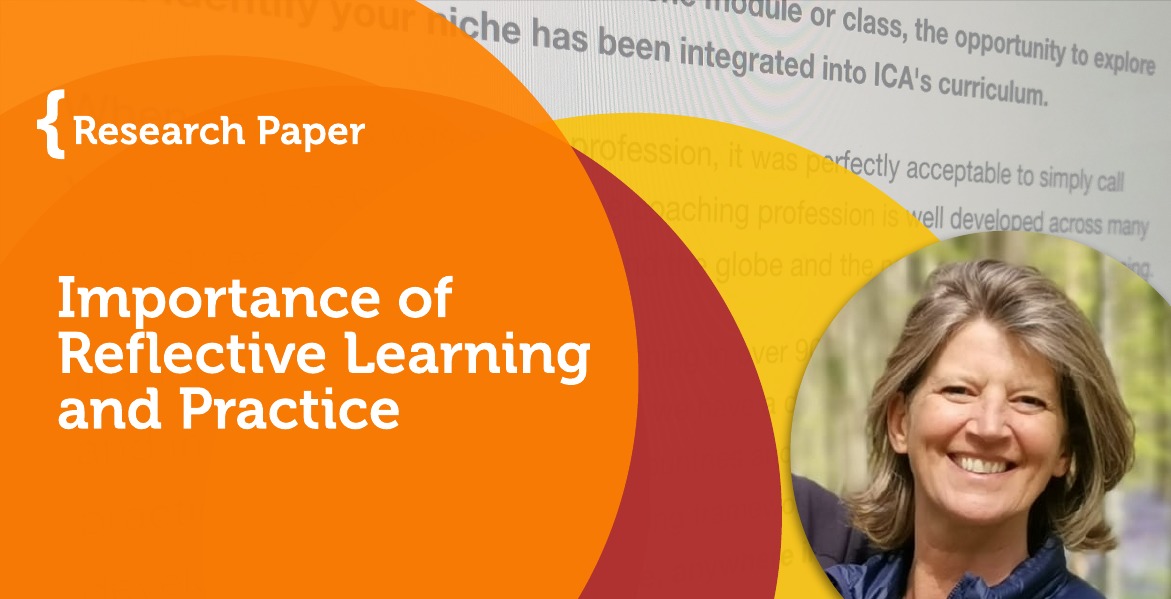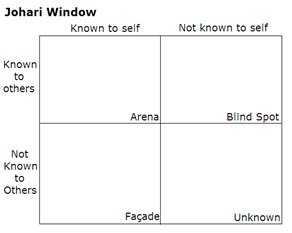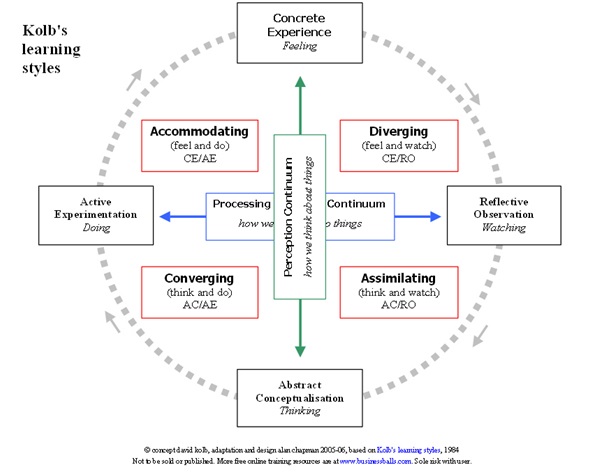
Research Paper By Helen van Ameyde
(Business Coach, BELGIUM)
The importance of reflective learning and practice.
Reflective learning and practice is a key component of coaching as it enables coaches to monitor their own professional practice in various ways. In this paper, reflective learning and practice are explained in terms of what it is, why it is important for adult learning, and how it is used to monitor individual professional practice.
What is reflective learning and practice?
Sam Magill from the International Coaching Federation (ICF 2011) writes descriptively about reflective learning in coaching and in his piece, he explains the essence of it: “the act of waking up to what happens in practice”. He adds, “it is about the coach coming home and turning on the lights again rather than bumping around in the dark”. Without conscious reflective learning and practice, a coach is unable to ‘wake up’ or ‘turn on the lights’.
A more formal definition of reflective learning could be, “an intentional process, where social context and experience are acknowledged, in which learners are active individuals, wholly present, engaging with another, open to challenge, and the outcome involves transformation as well as improvement for both individuals and their organization”. (Brockbank, 2012) Reflective practice for coaches often takes place within supervision and mentoring relationships, and this is where the engagement with another and the intentionality of the process takes place.
The ‘intentional process’ within reflective learning and practice, means the conversation has a purpose that is clear to all parties. The purpose is to develop and grow: reflective learning for improvement i.e. improving our coaching practice; reflective learning for transformation i.e. challenging assumptions, and why we do what we do; and finally, learning about learning i.e. improving our ability to reflect and use the reflections to develop individual and organizational coaching practice (Argyris and Schon 1996).
‘Engaging with another’ drives double-loop learning which can lead to real transformational change (Brockbank et al 2012). Coaches can challenge assumptions and heuristics within their coaching relationships: What was behind the decision to ask X? What was the answer I thought I would get? What assumptions am I making about the coachee? This type of dialogue is the basis of reflective learning and practice and, as it is sometimes difficult to challenge one’s own assumptions and unconscious bias, it is best done within supervision. Johari’s window (fig. 1) is a good basis for reflective conversations and ‘engaging with another’ as each quadrant encourages a dialogue that can challenge perceptions, ideas, and assumptions.
 Fig 1. Luft and Ingham, Johari’s window
Fig 1. Luft and Ingham, Johari’s window
In the ‘Arena’, facts and feelings are articulated.
In ‘Façade’, one can question the assumptions around certain questions and behavior.
The ‘Blind’ spot can shine a light on what the client might be seeing or feeling that they can’t see or admit to.
In ‘Unknown’, one can ask what a third person in the room would say about the different relationships and dialogue Luft and Ingham 1955.
Eric de Haan (2012) suggests that reflective learning and practice within supervision has two functions. Firstly, that by reflection you improve a coaches’ potential action and enhance the practice. The other is that by reflecting on reflection, one learns how to strengthen others’ reflection processes. “Supervision helps one to reflect on your reflection process” and, “you are in supervision to enter into a relationship that puts the relationship under the microscope” (de Haan 2012). Reflective learning and practice is a key activity in coaching, coach supervision, and mentoring: it is an attempt to improve dialogue and receive feedback and challenge on the client-coach, client-organization, and coach-supervisor relationship.
Elaine Patterson from the Coaching Supervision Academy presents her summary of reflective practice, “a reflective learning practitioner is, therefore, a practitioner who consciously and intentionally applies and lives reflective learning practices to his or her professional practice. It becomes a way of being in the world”.
For me, reflective practice is a safe space to raise doubts, challenge one’s own thinking, and provide space and opportunity to think – ‘to turn on the lights’ on my own coaching practice. Trust, in the process and the people involved, is key to effective learning and honest feedback, and that can be built up over time within strong mentor/supervisor and coach relationships.
Reflective learning and practice in relation to adult learning
David Kolb published his learning styles theory in 1984 where he introduced the ‘cycle of learning’, typically expressed as a four-stage cycle of learning. The model suggests that ‘immediate or concrete experiences’ provide a basis for ‘observations and reflections’. These ‘observations and reflections’ are assimilated and distilled into ‘abstract concepts’ producing new implications for action that can be ‘actively tested’ in turn creating new experiences i.e. a cycle of experiencing, reflecting, thinking, and acting (fig 2).
 Figure 2: Kolb’s Learning Cycle 1984
Figure 2: Kolb’s Learning Cycle 1984
Kolb’s learning cycle introduces the concept of reflection as a way of developing and challenging one’s thinking and perception, so that the doing (active experimentation) may look different. A coach can use reflective learning to challenge their own professional practice within a mentoring relationship, and in addition, bring casework to the sessions “to wake up from slumber, and speak with a different pitch and tone” (de Haan).
Reflective Learning and Practice in relation to one’s own professional practice
Different models of reflection can be used in coach mentoring and supervision. The SOAP model (Clutterbuck. D., 2016)can help a coach prepare for supervision sessions.
Preparation and then dialogue around subjective feelings, objective facts, and analysis helps move the coach from reflection to action, and therefore improve personal learning.
Rolfe at el (2001) has a simple but effective ‘what’ format for reflection.
If nothing changes in the approach of thinking of a coach, then the reflection is a look back, and acceptance of what happened, rather than reflective learning and practice in the true sense of ‘waking up to what happens in practice’.
I enjoy adding the first step to Rolfe’s ‘what’ model and it links to the SOAP reflection model above. The first step is to,‘Try Something’, this makes the practice ‘conscious’ and enables the coach to try new tools and techniques. Although, one must ensure that the desire to try something out does not get in the way of ‘being fully present’ as a coach.
Reflective learning and practice can be separated into three functions. Firstly effect; namely the emotion or feeling in self and in relation to others. Secondly conative; namely the behavior of acting or interacting with the wider audience. Finally cognitive; namely knowing, leading to knowledge. Looking at a situation through different lenses or functions can help build up a better awareness of the situation and therefore learning.
In terms of monitoring my own professional practice there are a number of things that I have put in place that help develop my reflective practice as a coach:
- Reflection on Learning (what went well, what did I learn?)
- Coaching Competencies and Application to Practice – this allows me to identify and understand if I have a preference for a certain focus during coaching. In addition, I can challenge myself and question whether any heuristics, transference, or counter-transference challenges are getting in the way of open discussion. Transference and counter-transference refer to the tendency to ‘transfer’ feelings from past relationships e.g. parents, siblings, line managers to current relationships (Sandler et al. 1992; Howard 2009).
- Comments on observed coaching or other feedback.
PAS model
The elements that I have found particularly useful in my own practice are to cultivate conscious practice i.e. to ‘try something’, and be honest with coachees about what I am doing and why. This also helps with being non-directive as it is important to develop trust and openness in coaching relationships. In addition, encouraging learning through reflection is a key component of andragogy[1]; it is far more informative and helpful to share learning and experience rather than trying to assert knowledge.
Reflective learning and practice are key development tools for any coach as they can help develop the skills, knowledge, and competence needed to fulfill the coaching role for both the client and the coach.
Bibliography
Brockbank, A. M. (2012). facilitating reflective learning: coaching, mentoring, and supervision. Kogan Page.
Clutterbuck, D. B. (2011). Coaching and Mentoring Supervision. Open University Press, McGraw Hill.
Clutterbuck, D. W. (2016). Coaching Supervision. Routledge.
Haan, E. d. (2012). Supervision in Action. McGraw Hill.
Wikipedia. (2017, August). Andragogy – Wikipedia. Retrieved from Andragogy – Malcolm Knowles: https://en.wikipedia.org/wiki/Andragogy
[1] Andragogy – adult learning principles based on Malcolm Knowles (Wikipedia, 2017) work. Under this approach educators encourage learners to connect their past experiences with their current knowledge-base and activities. Learners are taught ways to bring to their current placement past knowledge, opinions, and experiences.